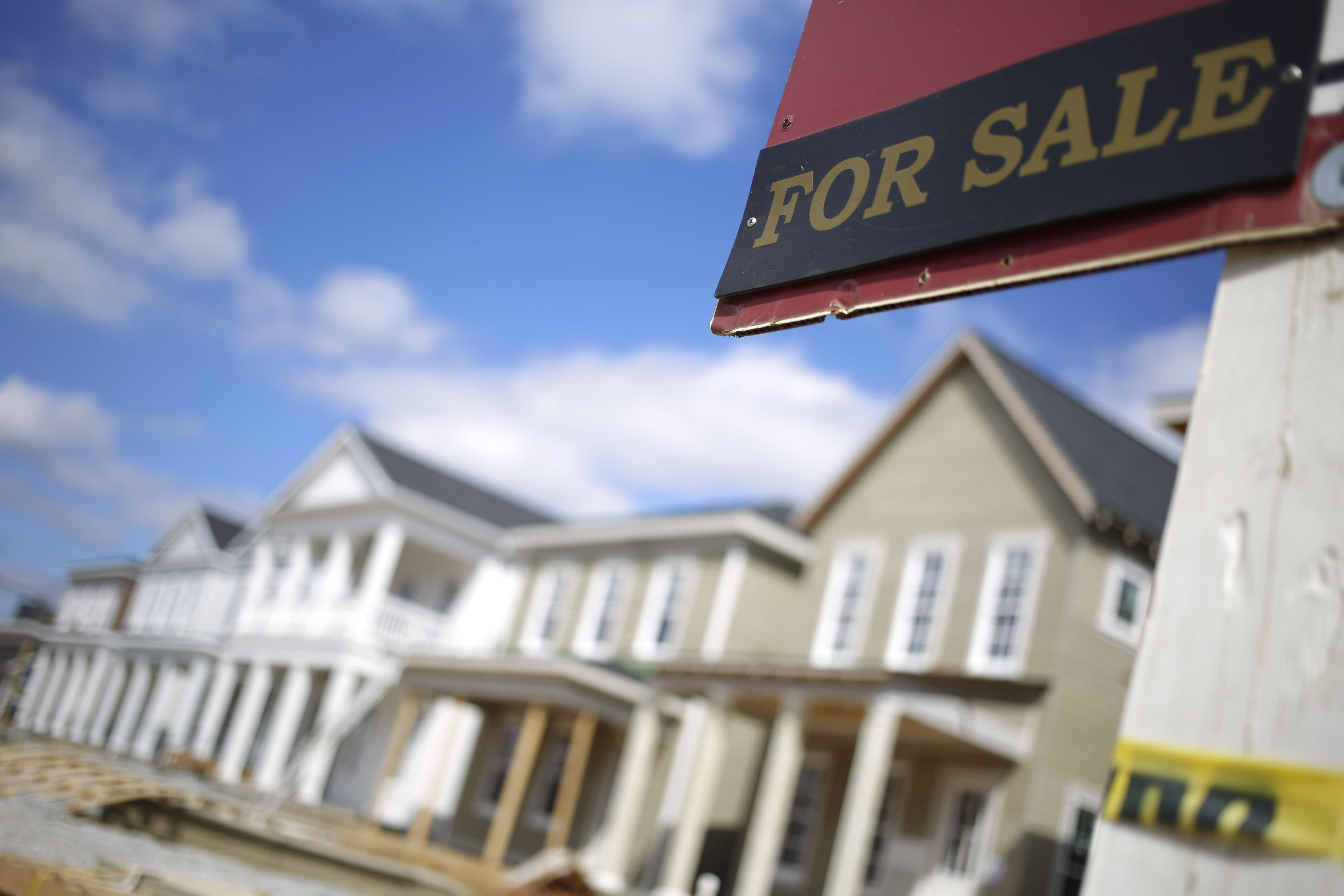
Sales of both newly built and existing homes tanked in March, as potential buyers hunkered down and potential sellers pulled their homes from the market, both watching their economy in free fall from the coronavirus.
Now, suddenly, buyer demand at least may be climbing back.
Pending home sales — a measure of signed contracts, not closings — are about 32% lower annually now, according to research by Zillow. But the week-over-week change in pending sales turned positive in the week ending April 15. Pending sales were up 6.2% week over week as of the seven days ending April 19.
Zillow also noted that web traffic on for-sale listings and requests to connect with real estate agents have grown in recent weeks as well. While web traffic to Zillow listings in some markets is still way down from a year ago, the national total jumped 13% annually for the week ending April 13. In 30 of the 35 largest metro areas, web traffic to for-sale listings was higher annually during the second week of April. Traffic was still lower in Pittsburgh, Detroit, Philadelphia, Boston and New York City.
It's too early to fully understand why interest in buying homes has bounced back so suddenly. People may just be getting more bored at home and are interested in seeing if there are any great deals on homes in their areas.
It could, however, reflect potential homebuyers and sellers responding to some relatively good news, according to Zillow economist Jeff Tucker. Those may include the U.S. seeming to begin to flatten the curve of Covid-19 infections, as well as a strong stock market rebound in the previous couple of weeks.
In addition, more people are learning about how the housing market is quickly transitioning into virtual operation. Home tours have gone online, with live agent showings. Home inspections, appraisals as well as closings, in some states and at certain price points, now can also be done virtually. That was not the case just a month ago. In addition, home values have so far held, which makes the investment seem less risky.
"Real estate transactions and new listings have declined abruptly amidst the coronavirus pandemic, but we haven't yet seen prices significantly affected," said Tucker. "Buyers have pulled back in the face of new economic uncertainty but sellers are also shying away from listing their homes in a market that was already starved for inventory, so it is possible that home prices remain insulated, at least in the short-term. Like a canoe being carried by two people who drop both ends simultaneously, the market slowdown may not tip clearly in favor of buyers or sellers."
In a weekly survey, 74% of agents said their clients have not reduced listing prices to attract buyers, according to the National Association of Realtors. There is clearly no panic selling, despite the uncertainty in the overall economy.
"Consumers are mostly abiding by stay-in-shelter directives, and it appears the current decline in buyer and seller activity is only temporary, with a majority ready to hit the market in a couple of months," said Lawrence Yun, NAR's chief economist. "Given that there are even fewer new listings during the pandemic, home sellers are taking a calm approach and appear unwilling to lower prices to attract buyers during the temporary disruptions to the economy."
A similar report from Redfin, a real estate brokerage, showed buyer demand recovering slightly. It compared the daily number of homebuyer inquiries now, regardless of whether the buyer used a Redfin agent or one of its partners, to the average in January and February, seasonally adjusted. For April 13 to 19, buyer demand was down 19% from pre-coronavirus levels, an improvement over the 34% drop in early April.
New listings, however, are still way down. In an April survey of 216 prospective sellers, just one in five thought it was a good time to sell, down from one in two at the beginning of March, according to Redfin. At the end of March, existing home supply was at the lowest level in the history of the NAR's monthly survey.
As for newly built homes, sales plummeted in March. Yet supply rose, and it is now far above the still meager supply of existing homes.
"Low mortgage rates and continued demand from the millennial generation should drive a rebound in housing activity later this year and into 2021," said Ben Ayers, senior economist at Nationwide. "With the inventory for existing homes expected to remain tight, there will be the opportunity for strong gains in new home sales again."
Mortgage rates are low, but credit availability is still incredibly tight, due to the government's mortgage bailout. It allows borrowers with government-backed loans to delay up to a year's worth of payments if they have financial strain due to the coronavirus. More than 3 million borrowers are already in that program, and the risk to lenders is only increasing, which has made their underwriting far more strict.
While some in the housing industry may want to believe in a quick bounce back, not everyone is so optimistic. Matthew Pointon, an economist with Capital Economics, recently predicted home sales could fall by 35% annually this spring compared with last quarter of 2019. That would mean total home sales of around 4 million annualized, the lowest since the start of 1991.
"back" - Google News
April 24, 2020 at 12:20AM
https://ift.tt/2xSwXcK
Housing demand may have started to bounce back from coronavirus impact - CNBC
"back" - Google News
https://ift.tt/2QNOfxc
Shoes Man Tutorial
Pos News Update
Meme Update
Korean Entertainment News
Japan News Update
Bagikan Berita Ini















0 Response to "Housing demand may have started to bounce back from coronavirus impact - CNBC"
Post a Comment